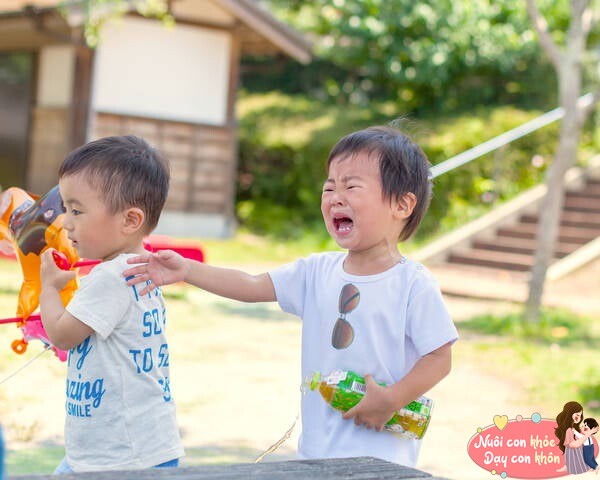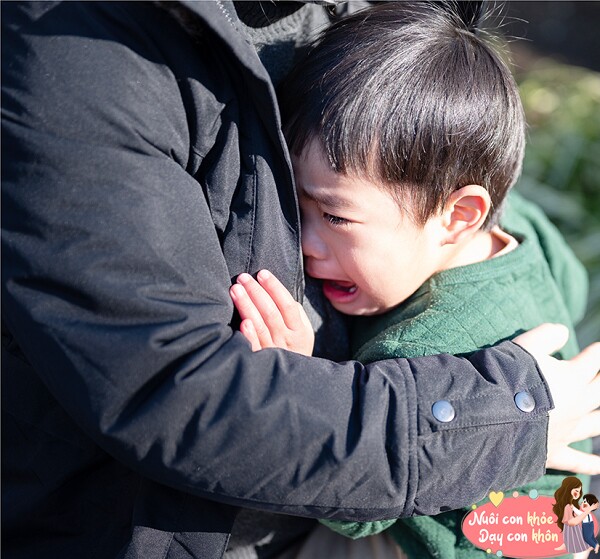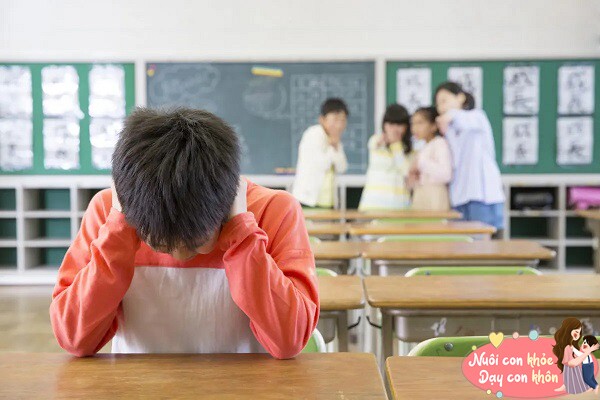

When Your Child’s Possessions Are Stolen
Children sometimes face tricky situations, such as having their possessions stolen or being forced to share. Some children can be selfish and will snatch back their favorite toy. On the other hand, some children will accept the injustice and walk away, leading to feelings of unfairness and hurt.
When faced with these situations, if parents say things like, “Never mind, just let your sibling/friend have it,” the child feels that sacrifice is mandatory. Parents also cannot ask the child to take it back.

Therefore, a suggestion from the expert is that parents can step in and appropriately refuse on the child’s behalf, “This is my child’s toy. If you want to play with it, ask them if they are willing to share.” This approach helps children recognize their ownership and personal boundaries.
Even siblings within the family should not be allowed to demand sharing if the child is uncomfortable. It is essential that children understand that they have the right to decide about their belongings.
When children are taught that “My things are my business, and I have the final say. Others cannot take them away just because they want to,” they will develop self-confidence and the ability to protect themselves.
Children will learn to say “no” politely but firmly, stand up for themselves without causing conflict, and thus foster self-confidence and respect for themselves and others.

Even siblings within the family should not be allowed to demand sharing if the child is uncomfortable.

When Your Child Is Rejected or Ridiculed
Most of us have a “fault-finding” mentality. Whether the initial intention is good or bad, criticism can easily hurt. Especially for children, being rejected or ridiculed can become a haunting shadow.
In this case, if parents can provide timely support, children will be more confident and more likely to achieve greater success in the future. Parents should start by discovering and acknowledging their child’s strengths, as well as working on improving weaknesses. This will help children feel loved and develop a positive self-image.
For example, some children may be perceived as timid, but if we look at it from a different perspective, they are cautious when making decisions. This caution gets them into less trouble and becomes an advantage in many situations.
When others deny your child, parents should not rush to agree with them. Agreeing with negative assessments can cause children to become what is described. Instead, protect and support them, help them realize their self-worth, and encourage them to aim higher.

Protect and support your child to help them realize their self-worth.

When Your Child Is Being Bullied
As we know, bullying causes physical harm and deeply affects a child’s psychology and emotions. In such difficult times, a parent’s presence and support can be the greatest encouragement, making the child feel safe and loved.
Firstly, when parents take their child’s side, the child realizes that someone is always ready to listen and help, creating a sense of reassurance.
Additionally, parental support helps children develop coping skills for difficult situations. Parents can guide their children on how to respond to bullying, such as teaching them to say “no” firmly, seeking help from teachers or adults, or even resolving conflicts peacefully.
However, parents also need to teach children how to protect themselves and encourage them to build positive relationships with peers. Creating a support network around the child, including friends and teachers, provides strength when facing bullying.

Bullying causes physical harm and deeply affects a child’s psychology and emotions.
Just like when we were learning to ride a bike as kids, we only dared to pedal when our parents sat on the back seat. Once we knew that there were two hands behind us to catch us if we fell, we felt more confident to let go.
This support is not limited to holding the bike steady but is also evident in other aspects of life. When children face new challenges, having their parents by their side provides a solid foundation.
Therefore, parental support and encouragement are crucial. Be your child’s pillar of support so they feel safe to explore, experience, and grow.






































